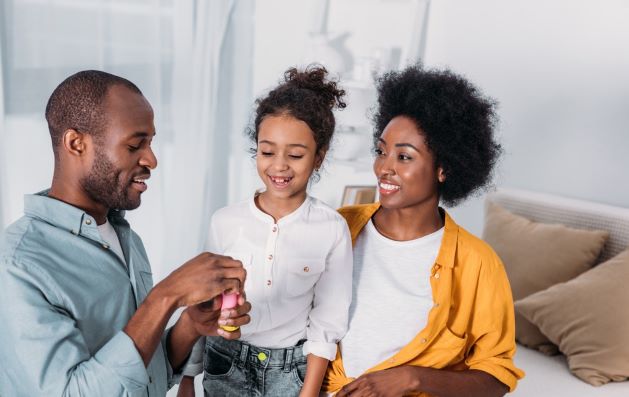Why are coping skills important?
By teaching our children coping skills we are giving them the tools that will allow them to cope with challenges in the future. It might not come easily at first, but practicing these skills from an early age can be likened to “weight-lifting” for the brain. Each time they use a coping strategy effectively your child will increase their confidence in their own ability to tackle difficulties head-on and there is less chance that they will give up when faced with a difficult situation in the future or turn to unhealthy strategies, such as escaping (temporarily) through substance abuse.
When should I start teaching my child coping skills?
There is no “ideal time” to start teaching these coping mechanisms – in fact kids learn to “cope” right from birth. When they cry as babies, they are effectively learning to ask for help. When temper tantrums are handled correctly they learn to deal with frustration and to delay gratification. There are virtually hundreds of practical coping skills for kids that relate to unique situations, but in this post I want to focus on what kids can do when they find themselves in a really tight spot – when they’ve run out of practical options and have to rely solely on their psychological resilience to help them get through a difficult situation.
The most important coping skills for kids to learn:
- Truly understanding the concept of Resilience – as with most things in life it is easier to really commit to a concept once you fully understand what it means. Resilience is an abstract concept, but easily explained using the following analogy: I usually tell my play therapy client that being resilient means being like a mechanical spring. Life might get heavy and push us down sometimes, but if we learn to be resilient we can just jumps straight out again once we deal with the heavy stuff.
- Positive self-talk. We might not even be aware of it, but we constantly use self-talk strategies in our daily lives. Positive self-talk can be defined as having an optimistic, positive voice inside your head. Teach kids to monitor what their inner voice is saying – if it is negative, stop the voice in its tracks and make a conscious effort to change it. reinforce messages of “I CAN do this” and”I AM capable”.
- Find the humour in your situation. Being able to laugh at a difficult situation decreases the anxiety we are bound to feel and protects us from becoming depressed when we’re in a tough situation.
- Visualisation. Our subconscious mind accepts the thoughts we repeat and by visualising yourself achieving your goals or finding a way out of your unpleasant situation your brain is “training” to perform these actions in the real world. Visualisation subtly changes our mindset and attitude, which changes our thoughts, habits and behaviours and so incrementally helps us along towards achieving our goals.
- Manage your stress: Brain studies have repeatedly shown that the chemicals our bodies produce when we are stressed actually shrink our brains. You simply can’t think clearly when you are stressed out, so teach your kids to keep the hysteria down.
- Accept what you can’t change and move on. There is no use in wasting your precious mental resources on ruminating on what could have been.
- Help your child find an internal locus of control. An “internal locus” of control means that we believe that we are primarily responsible for the situations we find ourselves in through the choices we have made. Having an “internal locus” of control empowers children and helps them feel less vulnerable to the powers of fate.
- What is positive about this? Helping children to find the silver lining in a situation prevents them from feeling that all is lost and helps them salvage what they can from a bad situation.
- Talk about it – even if you can do nothing else, simply talking about a bad situation might take a load off your shoulders. Talking gives children an opportunity to express all their pent up emotions and will also allow them to see the situation from another person’s perspective.
Follow us on Instagram or Facebook for more tips and advice!




